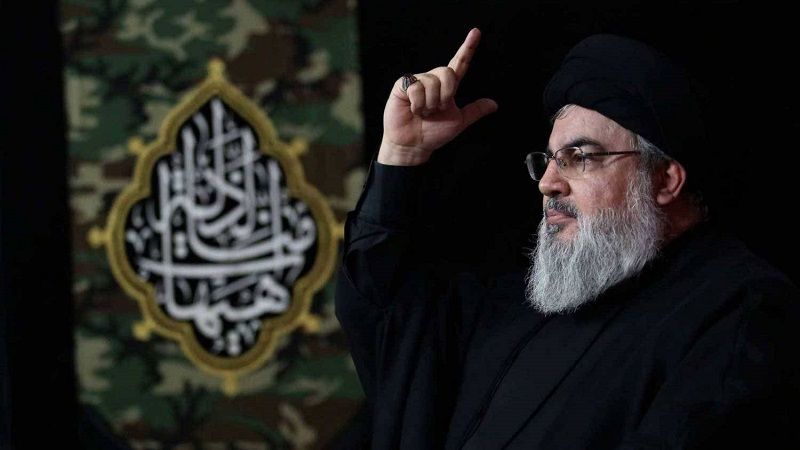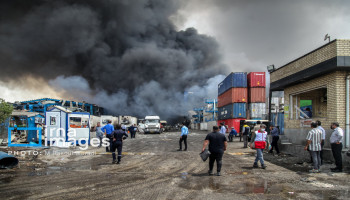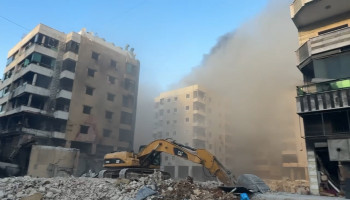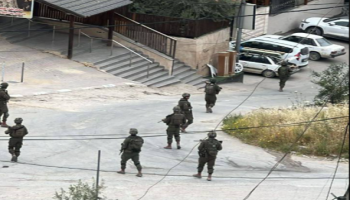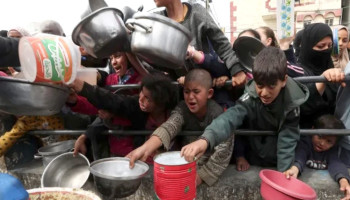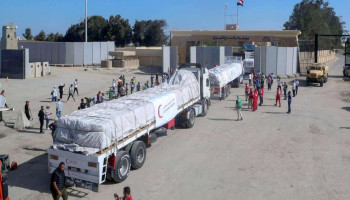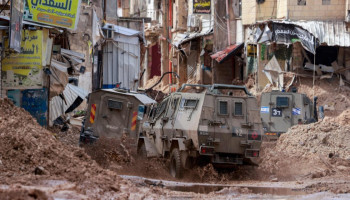The assassination of martyr leader Sayyid Hassan Nasrallah marks a pivotal moment for the region, one poised on the edge of a volcano. The aftermath will be unlike anything that came before, with predictions of escalating events that may soon lead to a wider, more encompassing war.
At this critical juncture, the enemy, led by the criminal Netanyahu, is pursuing two primary objectives: first, to crush the morale of the free people of the region, and second, to project a false sense of victory to the Zionist public, which for the first time since the Al-Aqsa Flood operation in October, faces a genuine existential threat.
In this fragile situation, the Zionist enemy, with the help of complicit Arab voices, is spreading rumors aimed at furthering its main objective—creating despair among the free people of the region. They seek to portray the enemy as invincible, the Lebanese front as weak, and Hezbollah as incapable of confronting Israeli aggression. The recent Israeli attacks on Lebanon, including civilian deaths and the assassination of leaders, are framed as the prelude to Hezbollah’s defeat. As a result, the Zionist entity now basks in a false sense of triumph, as Netanyahu uses these events to shore up his image among Israelis and avoid facing trial or removal from office should the war on Lebanon and Gaza end.
Hezbollah Stands Stronger
Contrary to the Zionist narrative and the Arab media that amplifies it, Hezbollah remains steadfast in its just cause, demonstrating resilience and wisdom in navigating these developments. On the ground, Hezbollah’s fighters and rockets continue to strike deep into the Zionist entity, inflicting pain upon the occupiers.
Signs of Hezbollah’s strength and cohesion were made clear in a speech today by the party’s Deputy Secretary-General, Sheikh Naim Qassem. His composed and pointed address conveyed several crucial messages to domestic and international audiences. Among the most important was his confirmation that Hezbollah’s military capabilities remain intact, with the enemy unable to degrade them. He also stressed the unity within the party’s leadership in choosing a successor for martyr leader Nasrallah, reassuring that alternative plans were already in place to guide the party through such times.
Sheikh Naim Qassem’s remarks underscored that Hezbollah’s structure is institutional and resilient to even major setbacks. This is evident from the continued missile strikes by the Lebanese Islamic Resistance on enemy settlements in northern occupied Palestine, which only increased in frequency and intensity. The seamless continuation of operations proves that Hezbollah’s command structure remains in firm control, with capable leaders ready to fill any gaps quickly and efficiently.
Had these blows been dealt to another organization, it might have crumbled under the pressure. We saw how Israel was shaken after the Al-Aqsa Flood operation, and had it not been for U.S. support, the Zionist entity might have collapsed. Yet, despite the painful losses, Hezbollah has shown remarkable flexibility and resilience, remaining committed to the same path. Sheikh Naim Qassem reaffirmed that Hezbollah will continue supporting Gaza, defying Israel’s aim to separate the Lebanese front from Gaza’s struggle. He also emphasized Hezbollah’s preparedness for a long-term battle and readiness to counter any potential ground invasion.
This speech came at a critical time, shattering all the American and Zionist boasts about neutralizing Hezbollah’s capabilities. It made it clear to all that the party remains strong, fully capable of reorganizing itself swiftly. By Allah's will, this resilience will be the key to victory as it delivers significant blows to the enemy, particularly in response to its brutal crimes, from the killing of civilians to the assassination of leaders, including martyr leader Nasrallah.
Shattering the Enemy's Hopes
It is now evident that we are in the midst of an all-out war. This is no longer a mere escalation or exchange of strikes—the war has begun in all its horror and pain. Israel is not acting alone in this aggression; as it is being backed by the U.S. and NATO. Netanyahu and his allies are wagering on the destruction of Hezbollah and its military arsenal, aiming to turn the southern suburbs of Beirut into another Gaza.
In the early stages of the war, enemies often resorted to delivering concentrated and painful strikes, particularly targeting civilians, and then portraying these actions as victories. Their goal is to break the morale of the population and push them toward collapse and surrender. This is what they hope to achieve following the assassination of martyr leader Nasrallah and other Hezbollah leaders.
In this context, Sayyid Abdul Malik Badruldeen al-Houthi—may Allah protect him—emphasized the importance of recognizing the enemy’s plans and the role of traitorous collaborators. He stressed the need to foil the enemy’s hopes of using its crimes to demoralize Hezbollah’s resistance front.
Indeed, Hezbollah has faced severe blows following the assassinations of its leaders, culminating in the loss of martyr leader Hassan Nasrallah. However, these challenges do not lead to Hezbollah’s defeat. The party’s history is filled with painful experiences, and it has long grown accustomed to such trials. This is why we continue to witness Hezbollah’s precision operations and its bombardment of the Zionist entity’s core, as if martyr leader Nasrallah were still with us.
Resistance Movements Endure
History shows us that resistance movements are built to withstand the loss of a leader, even through assassination or martyrdom. Hezbollah has faced this before: when commander Imad Mughniyeh was assassinated, it did not weaken, and after the martyrdom of its previous Secretary-General Abbas al-Moussawi in a Zionist assassination, Sayyid Hassan Nasrallah emerged as a towering figure, becoming a nightmare for the Zionists until his martyrdom. Now, Hezbollah is once again reorganizing after this major security breach, and it will remain steadfast, delivering even more painful blows to the enemy.
Hezbollah is far from the weakness portrayed by the Zionist media and their Arab allies. The party has never been naïve, fully aware since the 2006 July War that another round of conflict with Israel was inevitable. As a result, its preparations have been comprehensive, its structure robust, and its leadership courageous and steadfast, fully capable of leading this battle with confidence.
The U.S. will soon realize the grave mistake it made by assassinating martyr leader Hassan Nasrallah and escalating the situation in Lebanon. This will become evident through the increasing suffering and outcry from the Zionists themselves. So far, Hezbollah has only utilized a fraction of its capabilities, focusing its strikes on military targets in support of Gaza. But as the Zionists continue to spill innocent blood, Hezbollah is likely to implement the "civilian for settler" equation that martyr leader Sayyid Hassan Nasrallah had articulated. When that happens, the Zionists will experience immense pain, desperately seeking to end the war—only Hezbollah will have the power to decide its outcome.
Currently, the mission is to thwart the enemy’s hope of breaking morale, as Sayyid Abdul Malik Badruldeen al-Houthi emphasized. Media figures have a crucial role in reassuring the public that resistance is ever-renewing and that the path of resistance is never easy. It is filled with challenges, but martyrdom for the sake of Allah is the highest honor for any fighter, leader, or individual, no matter their position.

